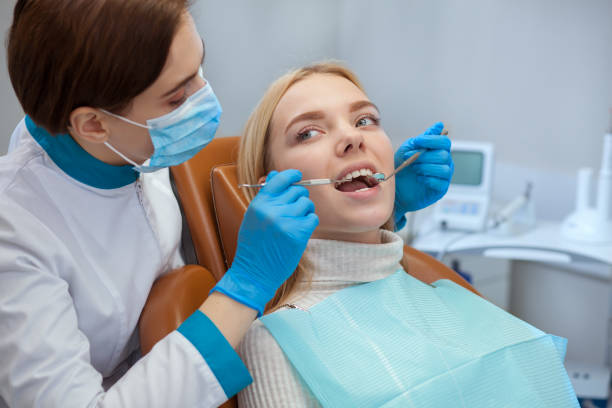
The Emergency Dental Care: What to Do in a Dental Crisis
Introduction
When it comes to life’s unexpected curveballs, dental emergencies often catch us off guard. A throbbing toothache in the middle of the night or a chipped tooth during a weekend barbecue can turn a relaxing day into a stressful ordeal. In these moments, knowing how to handle Emergency Dental Care can make all the difference between agony and relief.
In this guide, we’ll walk you through the steps to tackle the unforeseen dental dilemmas that life may throw your way. From excruciating toothaches to knocked-out teeth, we’ve got you covered with practical advice on how to navigate the perplexing world of emergency dental care.
So, whether you’re dealing with a midnight dental disaster or preparing for the unexpected, let’s dive into the world of Emergency Dental Care: What to Do in a Dental Crisis.
Toothaches: The Midnight Menace
A toothache is like an uninvited guest that arrives at the worst possible time—usually when you’re drifting off into dreamland. Here’s what to do when you find yourself in the clutches of this dental demon:
1. Rinse and Floss
The Emergency Dental Care: What to Do in a Dental Crisis begins with a rinse. Gargle with warm water to dislodge any food particles stuck in your teeth. Next, floss gently to remove any debris that might be causing the pain. Sometimes, a trapped piece of popcorn can transform into a formidable foe.
2. Over-the-Counter Pain Relief
Reach for the ibuprofen or acetaminophen. These over-the-counter pain relievers can provide temporary relief from the throbbing ache while you figure out your next steps. Remember to follow the recommended dosage.
3. Cold Compress
A cold compress can work wonders in reducing inflammation. Wrap a bag of ice or a cold pack in a cloth and apply it to the outside of your cheek for 15-20 minutes. This can help numb the pain and reduce swelling.
4. Contact an Emergency Dentist
If the pain persists or worsens, it’s time to call in the professionals. Search for an emergency dentist in your area who can provide immediate relief. Many dental clinics have emergency services to address these sudden dental crises.
Knocked-Out Tooth: A Sudden Departure
Imagine you’re enjoying a friendly game of basketball when, out of nowhere, you take an elbow to the mouth, and your tooth goes flying. It’s a nightmare scenario, but knowing what to do can save your smile:
1. Locate the Tooth
First and foremost, find the missing tooth. Time is of the essence here, so act quickly. Hold the tooth by the crown (the part that’s normally visible) and avoid touching the root.
2. Rinse, But Don’t Scrub
Gently rinse the tooth with milk or a saline solution. Do not scrub it or use any cleaning agents, as this can damage the delicate root cells that are essential for successful re-implantation.
3. Re-Position the Tooth
If possible, try to place the tooth back in its socket. Hold it there by gently biting down on a piece of gauze or a clean cloth. If re-inserting the tooth isn’t an option, store it in a container of milk to keep it moist.
4. Seek Immediate Dental Care
Once you’ve taken these steps, contact an emergency dentist immediately. Time is crucial when it comes to re-implanting a knocked-out tooth. The chances of successful reattachment decrease significantly with each passing minute.
Lost Dental Filling or Crown: The Disappearing Act
You’re enjoying a meal when suddenly, you feel something hard in your mouth, and you realize your dental filling or crown has decided to make a quick exit. Don’t panic; here’s what to do:
1. Save the Filling or Crown
If you’ve managed to find the missing filling or crown, keep it safe. You may be able to reattach it temporarily but don’t try to do so with super glue or other household adhesives. You’ll need a dental adhesive for this job.
2. Temporary Solutions
Drugstores often sell temporary dental cement that can help hold a crown or filling in place until you can get to the dentist. Follow the instructions carefully, and avoid chewing on that side of your mouth.
3. Call Your Dentist
Reach out to your regular dentist as soon as possible to schedule an appointment. They’ll be able to assess the damage and provide a more permanent solution.
Dental Abscess: When Infection Strikes
A dental abscess is an infection that can occur within a tooth or in the surrounding gum tissue. It’s a painful and potentially serious condition that demands immediate attention:
1. Saltwater Rinse
Gargle with warm salt water to help alleviate some of the discomfort and draw out the pus from the abscess. Mix half a teaspoon of salt into a cup of warm water and swish it around in your mouth.
2. Over-the-Counter Pain Relief
Over-the-counter pain relievers can help manage the pain while you wait for professional help. Follow the recommended dosage instructions.
3. Do Not Pop the Abscess
Resist the urge to pop the abscess or apply any pressure to it. This can worsen the infection and lead to further complications.
4. Seek Immediate Dental Care
Contact your dentist or an emergency dental clinic promptly. Dental abscesses can lead to severe complications if left untreated, including the spread of infection to other parts of the body.
Conclusion
Life has a knack for throwing us into unexpected situations, and dental emergencies are no exception. Emergency Dental Care: What to Do in a Dental Crisis is a vital guide to help you navigate these unforeseen challenges. Whether it’s a toothache, a knocked-out tooth, a lost filling, or a dental abscess, being prepared and knowing the right steps to take can make all the difference in preserving your oral health and relieving your pain.
Remember, while these tips can provide temporary relief and guidance, it’s crucial to seek professional dental care as soon as possible in any emergency situation. Your dentist is your ally in restoring your smile and ensuring your long-term oral health.
So, the next time you find yourself facing a dental crisis, don’t panic—refer back to this guide, take a deep breath, and take the necessary steps to reclaim your dental well-being. Your smile is worth it.
Leave a reply
